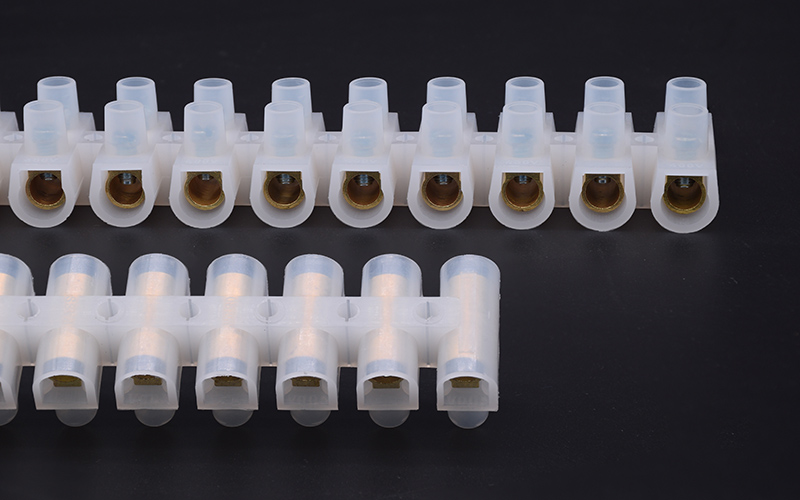Terminal blocks and barrier blocks are two essential components in electrical systems, each serving distinct purposes despite their similar appearances. Here's a brief comparison to clarify the differences:

Terminal blocks, also known as terminal connectors or screw terminals, consist of a modular housing with an insulated body designed to secure two or more wires together. They are widely used in various applications where electrical systems require safe and reliable connections. Terminal blocks provide a convenient way to organize and secure wires, making them essential in control panels, industrial machinery, and household appliances.
On the other hand, barrier blocks serve a different function. A barrier block is a type of terminal block with added insulation between each connection point. This insulation provides extra protection against short circuits and ensures that electrical connections remain isolated from each other. Barrier blocks are commonly used in applications where circuits need to be isolated from one another, such as in power distribution systems or control panels with sensitive electronics.
In summary, while both terminal blocks and barrier blocks are used for connecting wires in electrical systems, the key difference lies in the additional insulation provided by barrier blocks to isolate individual connections. Understanding these distinctions is crucial for selecting the right component to meet the specific requirements of each application.
That's it for the brief overview of the differences between terminal blocks and barrier blocks.


